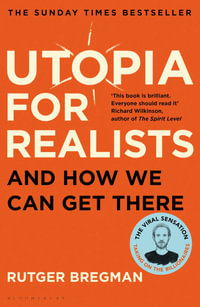From mitochondria to meerkats, the natural world is full of spectacular examples of social behaviour. In the early 1960s Bill Hamilton changed the way we think about how such behaviour evolves. He introduced three key innovations - now known as Hamilton's rule, kin selection, and inclusive fitness - which have been enormously influential, but which remain the subject of fierce controversy.
Hamilton's pioneering work kick-started a research program now known as social evolution theory. This is a book about the philosophical foundations and future prospects of that program. Part I, "Foundations", is a careful exposition and defence of Hamilton's ideas, with a few modifications along the way. In Part II, "Extensions", Jonathan Birch shows how these ideas can be applied to phenomena including cooperation in micro-organisms, cooperation among the cells of a multicellular organism, and culturally evolved cooperation in the earliest human societies. Birch argues that real progress can be made in understanding microbial evolution, evolutionary transitions, and human evolution by viewing them through the lens of social evolution theory, provided the theory is interpreted with care and adapted where necessary.
The Philosophy of Social Evolution places social evolution theory on a firm philosophical footing and sets out exciting new directions for further work.
Industry Reviews
This is a superb book. It is lucid, well written, sensible, and intellectually valuable, and the most critical parts are accessible enough for anyone willing to do a bit of homework now and then. It is available to most academic subscribers on Oxford Scholarship (and it is coming out in paperback later this year). It is an essential text for philosophy of biology and, more generally, anyone working on the evolution of cooperation. * Carl Brusse & Kim Sterelny, The British Journal for the Philosophy of Science *
I can only recommend this exceptionally clear, ambitious yet carefully and gently written book for researchers and students of social evolution * Ayelet Shavit, History and Philosophy of the Life Sciences *
The Philosophy of Social Evolution is an engaging investigation of the intellectual legacy of Bill Hamilton, a central figure in evolutionary biology whose ideas have had a lasting impact far beyond that discipline. The book combines mathematical rigour and accessibility ... Birch provides a well-reasoned and even-handed discussion of some controversial topics surrounding social evolution ... While this book is foremost a work in philosophy of biology, it should also be of interest to broader audiences, including philosophers of economics, as many of the foundational concepts Birch discusses have found their way into other fields (philosophy, anthropology, economics, sociology, etc.) and some of the extensions proposed ... are relevant to studying human behaviour. * Hannah Rubin, Economics & Philosophy *
Birch is extremely clear and careful in the development of his ideas and this makes the breadth and depth of this work even more impressive. The Philosophy of Social Evolution will, I suspect, become required reading in several different fields and, as I have suggested, there are insights here that extend beyond the philosophy of biology and evolutionary theory. * John Thrasher, Metascience *
Jonathan Birch's recent book The Philosophy of Social Evolution is a superb exploration of philosophical implications of Hamilton's work. ... In The Philosophy of Social Evolution Birch provides a comprehensive introduction to the conceptual foundations of the Hamiltonian view of social evolution, and a passionate defence of its enduring value in face of recent high profile criticism. ... Jonathan Birch shows why philosophy will continue to be an integral part of the future of the study of social evolution. * J. Arvid Agren, Studies in History and Philosophy of Biological and Biomedical Sciences *
Jonathan Birch's The Philosophy of Social Evolution is a careful evaluation of Hamiltons ideas and legacy, much of the discussion framed in the context of the individual versus group selection controversy. ... he gives a full and fair analysis of what Hamilton really intended. * Michael Ruse, The Quarterly Review of Biology *
























